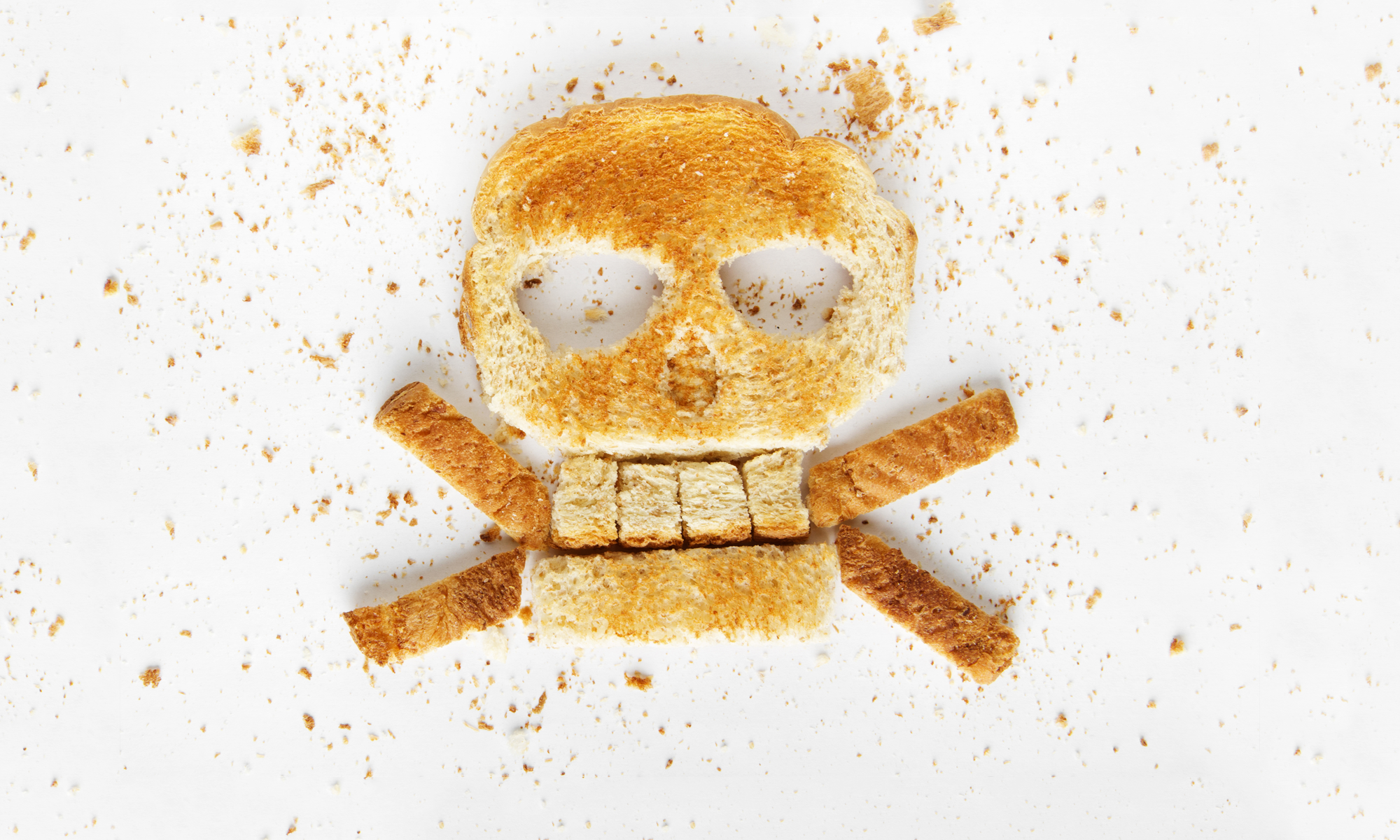Anxiety and depression are among the most common symptoms associated with Celiac disease, and seem to be among the issues most frequently experienced after diagnosis. Part of this can become very chicken-or-egg-like, as we try to tease out whether the anxiety/depression is present because we have been glutened, or because we fear being exposed to gluten. Nutritional deficiencies resulting from celiac disease can also further exacerbate or cause these symptoms. Either way, it is very real, and it is worth discussing tools that can help to lessen the impact of these mental health concerns.
In some cases, there may be a component of nutrient deficiency. This is especially prominent because celiac disease causes damage to the small intestine, which is responsible for the absorption of nutrients, and also the production of certain enzymes and neurotransmitters. It seems that the most likely suspects to be affected include the B vitamins, vitamin D, iron, zinc, magnesium, DAO (diamine oxidase, an enzyme which breaks down histamine), serotonin, and dopamine. Consequently, some of the most likely supplements/medications to be helpful to consider are:
- Iron
- Vitamin D3 (+K2 for absorption)
- Serotonin (5-HTP aka tryptophan)
- Dopamine (Low Dose Naltrexone or SAM-e)
- L-Theanine
- GABA
- NeuroProtek (in the case of DAO)
Your medical care team should be able to help you to assess nutrient deficiencies with blood tests, and information about the neurotransmitters becomes more clear in looking at genetic data like that of the 23andMe testing, with the assistance of a trained care provider who understands how to interpret the interactions of the various SNPs (in my case, it was a Naturopath). In cases where intestinal damage is severe, or oral versions are not well tolerated, IV iron or B12 injections can be absolutely game changing, and well worth discussing with your care team.
In some cases, these symptoms may be a sign of additional food sensitivities that may have been overlooked. Some of the most likely suspects include grains, dairy, eggs, soy, or food additives (colouring, flavouring, and preservative agents). There may also have been points of cross contamination with gluten that have been overlooked, like a non-medicinal ingredient in a medication/supplement, or the cast iron pan or bakeware that hasn’t been replaced since going gluten free. This only becomes more complicated if you are maintaining a “mixed” gluten and gluten free kitchen. The likelihood that someone has accidentally missed something or slipped up is just that much higher, let alone things like residue from imperfectly washed dishes, or double dipping in the jam. To learn more about how to set up a safe kitchen, and which items are most essential to replace when making the switch to gluten free living, I recommend this e-book.
That handy e-book also discusses many of the social aspects of navigating a condition like celiac disease. It’s rather daunting to consider at first, but food is such a huge part of our daily lives, and gluten is found in many of the most common dishes, all over the world. It can feel awkward or sad to no longer be able to have a piece of cake to celebrate a birthday, or beer and pizza with your crew. So when I wrote that e-book, I included a bunch of insights about how to navigate all sorts of social situations – everything from dating to holiday parties to ordering food in restaurants – and how to ask for and build the loving support network that you need. It really does help to have safe people with whom we can openly discuss all the things we’re thinking and feeling, without fear of judgement. All the better if they can empathize or have had those same feelings.
I also want to validate that it is entirely natural to feel a little blue as we adapt to the significant changes that celiac disease can bring into our lives. There may in fact be waves of grief, especially as you go through the first year – facing various holidays without your favourite foods, or at least dealing with the stress of needing to re-create the recipes with new ingredients. The good news is that it gets easier, and that there are so many more resources now than there used to be. If you’re stuck trying to wrap your head around something, you’re welcome to reach out to me at [email protected]. I still notice myself feeling anxious when going into unknown situations where I’m unsure if I’m risking exposing myself to gluten (and the following pain, frustration, and missed work that would accompany that). One of the situations this comes up in most for me is dating (and building new friendships). I have given myself permission to take breaks where I don’t engage with new people and just enjoy the safety of established connections. This allows me to take the time and space to restore my reserves, and have the energy to take on gluten safety ally education for the people I want to welcome into my life. I have also created a document I share with those who want to learn more, and have a list of places and activities that I know would be safe for me to suggest for a date. Little life hacks and strategies like that definitely help, and you can find many more in that e-book I mentioned above.
If you’ve already ruled out all of the above factors, or are simply looking for additional supports and ideas, here are a few more.
- Find a counselor you really connect with.
- Have a few trusted friends you can call on to be there for you when things are feeling rough. You might even choose to have a distress signal text. It’s important to still find ways to connect with the people who matter to you, even when you don’t feel like your best self.
- Meditate. Particularly in the midst of an anxiety spiral, it can be helpful to do meditative exercises that encourage you to notice and feel grounded in the world around you, like noticing 5 things you can see, 4 you can touch, 3 you can hear, 2 you can smell, and one you can taste. Further resources can be found on www.bcalm.ca, or here.
- Talk to your medical care team about how you’re feeling. There may be an additional diagnosis that was missed (perhaps a thyroid issue?), or they may be able to offer additional support, and help you assess when it might be time to consider using medication.
- Find a reason to get out of the house every day. Even if the furthest you get is sitting on the balcony with the sun on your face for 15 minutes, it’s still valuable. It helps to interrupt the pattern and can help you to remember the good things in your life.
- Keep a gratitude journal and write down at least one positive thing, or something you’re grateful for each day. It can be super simple and small.
- Distraction. While it might not be the best long term tool, distraction definitely has its place in managing hard feels. I recommend watching a TV show or movie that makes you laugh. Snuggles and hugs (with safe humans or pets) can be added for an extra boost if that works for you.
It is ok to take time and space to feel the feelings. If you find that you’re spending most or all of your time feeling depressed or anxious, please do seek additional help and support. Sometimes it’s a temporary thing that will pass, sometimes it’s a seasonal thing like SAD which can be supported by taking more vitamin D, using a sunlamp, or possibly traveling or moving somewhere sunnier. Sometimes it is a bigger, more pervasive thing. No matter what the cause or duration, know that you are worthy of support and compassionate care. I don’t know about the resources everywhere, but I’m mighty resourceful, so please do reach out if you need help finding appropriate local support. May you find wellness in every way possible.


One Reply to “Anxiety and Depression in Celiacs”